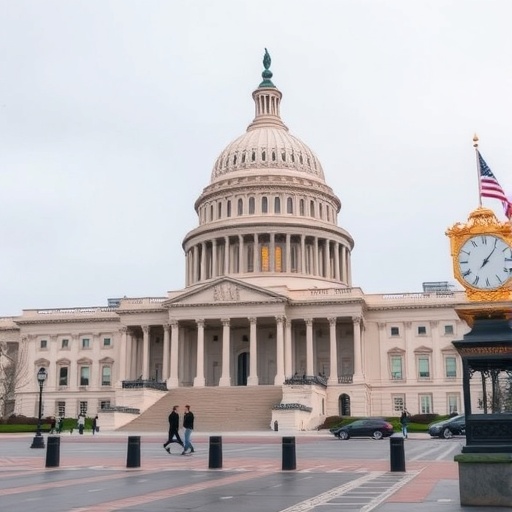Senate Flees Washington for Weekend as Government Shutdown Drags into Fourth Week After Seventh Failed Funding Bill Vote
In a stunning display of political gridlock, the Senate adjourned for the weekend on Friday evening, leaving the federal government shutdown to stretch into its fourth week without any resolution in sight. The departure came mere hours after a seventh failed vote on a critical funding bill, dashing hopes for a breakthrough and plunging millions of Americans into deeper uncertainty over paychecks, services, and national security.
This latest impasse highlights the deepening partisan chasm in Congress, where Democrats and Republicans remain deadlocked over spending priorities, border security funding, and disaster relief measures. As lawmakers pack their bags for home districts, federal employees face another weekend without pay, national parks stay shuttered, and the ripple effects of the shutdown continue to hammer the economy. With no scheduled votes until Monday, the crisis shows no immediate signs of abating, raising alarms about prolonged disruptions to essential government functions.
Seventh Failed Vote Exposes Deepening Senate Divisions
The Senate‘s seventh failed vote on the funding bill unfolded late Thursday night in a chamber filled with frustration and finger-pointing. The bill, a sprawling 1,200-page omnibus package aimed at averting the shutdown, sought to allocate $1.2 trillion in discretionary spending for fiscal year 2024, including $15 billion for border wall construction, $50 billion for Ukraine aid, and $20 billion in emergency disaster relief for hurricane-ravaged states like Florida and North Carolina.
However, the measure fell short by 12 votes, with a final tally of 48-52. Senate Majority Leader Chuck Schumer (D-NY) decried the outcome as “a betrayal of the American people,” accusing Republicans of holding the economy hostage over ideological demands. “We’ve tried seven times to pass a clean funding bill that keeps the lights on in America,” Schumer said in a floor speech. “But time and again, our colleagues across the aisle block progress for partisan games.”
On the Republican side, Minority Leader Mitch McConnell (R-KY) defended the opposition, arguing that the funding bill was bloated with “pork-barrel spending” unrelated to core priorities. “This isn’t about shutdowns; it’s about fiscal responsibility,” McConnell stated. “Democrats refuse to address the border crisis, and we’re not going to rubber-stamp their wishlist.” The vote breakdown revealed stark partisan lines: all but three Democrats supported the bill, while only two Republicans crossed over, underscoring the entrenched divisions plaguing Congress.
Behind the scenes, negotiations had been tense for weeks. Sources close to the talks revealed that a last-minute amendment proposed by Sen. Lindsey Graham (R-SC) to tie Ukraine funding to stricter immigration enforcement was a sticking point, alienating moderate Democrats. This failed vote not only prolonged the shutdown but also eroded trust among lawmakers, with several senators expressing exhaustion after marathon sessions that stretched into the early hours.
Federal Workers Bear the Brunt of Prolonged Shutdown Chaos
As the Senate heads home, the human cost of the government shutdown is mounting for the 800,000 federal workers now furloughed or working without pay for 21 days. From air traffic controllers at the FAA to Smithsonian curators in Washington, D.C., employees are dipping into savings, relying on food banks, and grappling with mounting bills. The Treasury Department estimates that unpaid workers have lost over $2 billion in wages so far, with projections climbing to $4 billion by week’s end if the impasse persists.
Take the case of Maria Gonzalez, a 45-year-old IRS auditor from Virginia, who has been furloughed since the shutdown began on December 22. “I’ve got two kids in college and a mortgage that’s due,” Gonzalez told reporters outside the Capitol. “This isn’t just politics; it’s my family’s livelihood hanging in the balance.” Stories like hers are proliferating across the country, with unions reporting a 30% spike in calls to employee assistance hotlines.
Beyond direct employees, contractors and small businesses tied to federal operations are reeling. In California, a defense contractor employing 500 people laid off 200 workers last week due to halted projects at naval bases. The shutdown‘s economic toll is staggering: the Congressional Budget Office (CBO) now forecasts a 0.5% drag on fourth-quarter GDP growth, potentially costing the U.S. economy $18 billion in lost output. National parks, closed to visitors, have forgone $150 million in fees, while delayed FDA inspections have slowed food safety checks, raising public health concerns.
Security implications are equally dire. The Department of Homeland Security warns that unpaid Coast Guard personnel are straining maritime patrols, leaving ports vulnerable. At airports, TSA screeners working without pay have seen morale plummet, with absenteeism up 15%, according to internal memos obtained by news outlets. These cascading effects illustrate how the Senate‘s failed vote on the funding bill isn’t confined to Capitol Hill—it’s disrupting lives nationwide.
Partisan Standoff Roots Trace Back to Broader Congressional Battles
The current shutdown is no isolated event but the latest chapter in a saga of fiscal brinkmanship that has defined Congress for years. It stems from the expiration of a continuing resolution on December 21, when lawmakers couldn’t agree on a full-year budget. Republicans, emboldened by House Speaker Mike Johnson’s slim majority, have pushed for deep cuts to non-defense spending and enhanced border security, demands Democrats label as “extreme.”
Historical context reveals a pattern: this is the 22nd government shutdown since 1976, but the longest since 2018-2019’s 35-day stalemate over border wall funding. That episode cost $11 billion and led to bipartisan backlash, yet lessons appear unlearned. Polls from Gallup show public approval of Congress at a dismal 18%, with 62% blaming both parties equally for the shutdown. A Pew Research survey indicates 71% of Americans view the impasse as harmful, with independents particularly frustrated.
Key flashpoints in the funding bill debates include $800 million for migrant processing at the southern border, which Republicans want doubled, and $110 billion in green energy subsidies from the Inflation Reduction Act, which conservatives seek to claw back. Sen. Kyrsten Sinema (I-AZ), once a swing vote, has mediated talks but lamented the failed vote as “a missed opportunity for compromise.” Meanwhile, progressive Democrats like Sen. Bernie Sanders (I-VT) have criticized the bill for not going far enough on social programs, adding another layer of complexity.
White House Press Secretary Karine Jean-Pierre blasted the Senate‘s departure, saying, “While families struggle, Republicans choose recess over responsibility.” President Biden, in a statement from Camp David, urged Congress to “put people over politics” upon their return. These exchanges highlight how the shutdown has become a proxy war for broader ideological battles, from immigration to climate policy.
Lawmakers’ Weekend Recess Sparks Outrage Among Constituents
With the Senate scattering to their home states, backlash is swift and sharp. In town halls scheduled for Saturday in key districts, senators face constituents demanding answers. Sen. Susan Collins (R-ME), a moderate, announced she would host virtual listening sessions to address shutdown impacts on Maine’s lobster industry, which relies on Coast Guard oversight.
Public outrage is palpable on social media, where #EndTheShutdown trends with over 500,000 posts. Veterans’ groups, affected by delayed VA benefits, have organized protests at state capitols. The American Federation of Government Employees (AFGE) union issued a statement calling the recess “tone-deaf,” noting that 40% of furloughed workers are veterans themselves.
Economists weigh in with stark warnings. Mark Zandi, chief economist at Moody’s Analytics, predicted in a recent op-ed that a shutdown extending past January could shave 1% off GDP growth in 2024, exacerbating inflation pressures. Small business owners, via the National Federation of Independent Business, report a 25% drop in confidence indexes, with many delaying expansions due to uncertainty over federal contracts.
Internationally, the stalemate is eroding U.S. credibility. Allies in Europe express concern over delayed Ukraine aid, while China has seized on the chaos to tout its own governance model. As Congress reconvenes Monday, pressure mounts from all sides, but with midterm election scars still fresh, compromise remains elusive.
Path Forward: Bipartisan Talks Resume Amid Economic Warnings
Looking ahead, the Senate is set to reconvene at noon on Monday, with Schumer vowing to bring a revised funding bill to the floor by Tuesday. Bipartisan working groups, including the “Problem Solvers Caucus,” are quietly drafting alternatives, potentially stripping contentious riders to pass a short-term extension. House Republicans, however, signal resistance, with Johnson stating no vote until Senate Democrats “get serious.”
Experts predict a resolution could come by mid-week if cooler heads prevail, but risks of extension loom large. The CBO warns of $6 billion in additional daily costs if the shutdown hits 30 days. For everyday Americans, the stakes are clear: restored paychecks, reopened services, and economic stability. As lawmakers return from their weekend respite, the nation watches to see if Congress can finally bridge the divide—or if the shutdown‘s shadow lengthens further.
In the coming days, negotiations will intensify, with potential for a scaled-back bill focusing on immediate priorities like back pay guarantees and essential services funding. Advocacy groups from both sides are mobilizing, urging swift action. The failed vote may have bought time for reflection over the weekend, but the clock is ticking on a crisis that demands resolution.








